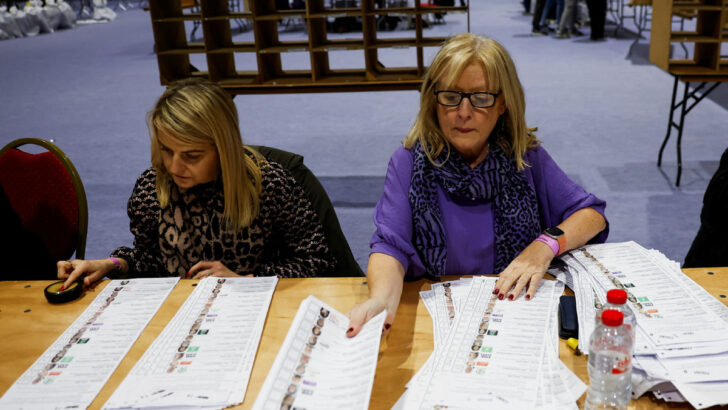Senator Rónán Mullen
“The people of Mayo,” Michael Ring once said, “have voted for a Taoiseach, a Tánaiste – and a Minister!” That was in 2007 when FG and Labour fought the General Election on the back of a 2004 electoral pact which they had agreed and gravely termed the ‘Mullingar Accord’.
The party leaders, Mayomen Enda Kenny and Pat Rabbitte, had hopes of going into Government and, if every constituency had been like Mayo where FG got three out of the five seats in 2007, they would have done. Michael Ring presumably had himself in mind as the ‘Minister’ that the Mayo electorate had voted for. But it was not to be. Bertie Ahern got 78 seats and a third term for FF, with help from the Green Party and what remained of the PDs.
Ring bowed out of the national political scene on Sunday, ending a lively and colourful Dáil career but not before helping his protégée, Keira Keogh, to take one of two seats for FG out of Mayo’s five. There was another newcomer also, teacher Paul Lawless from Knock, who ends Peadar Tóibín’s isolation as Aontú’s sole representative in Dáil Éireann.
Aontú’s progress seems hard won sometimes but Tóibín had reason to celebrate on Friday night when RTÉ’s exit poll showed his party doubling its overall share of first preferences from 1.9% to 3.9%. The supply of money, Cicero said, is the ‘sinews of war’.
By reaching 2% of the national vote, Aontú will now get its share of State funding for political parties, which it can spend on research, policy formation, media preparation etc. There is another pre-requisite for success – hard work locally.
Among his many activities, Lawless runs a ‘cataract’ bus which has helped hundreds of patients to get much-needed surgeries in the North. So Knock now has a Basilica, an Airport – and a ‘worker bee’ TD. Congratulations to Paul Lawless and to others like him elected at the weekend.
Change
The performance of the two Government parties was almost the same as 5 years ago, only slightly down: FF from 22.2% to 21.9% and FG from 20.9% to 20.8%. SF suffered a drop from 24.5% to 19%. “Cling to nurse, for fear of getting something worse,” seems to be the message from the electorate.
Despite a record budget surplus, there was no feelgood factor during this campaign. There is concern about the future impact of war abroad, health and housing policy at home, and President Trump’s economic agenda and what it might mean for Ireland.
But when a FF friend of mine opines that the electorate didn’t want change at this uncertain time, he’s not quite right. When you add up the FF/FG vote to that of well-established independents, it’s probably fairer to say that about half of the electorate doesn’t want change.
Ironically, for all the talk about the virtues of our PR electoral system (and I am a fan) we are still remarkably close to the situation in Britain that has drawn much commentary over the years, which is that a party with considerably less than 50% of the vote can potentially govern for a long time. It’s a winner-take-all situation.
Formation
As for Government formation, the numbers suggest that FF and FG could go it alone with support from Independents. With 86 seats between them, and moderates such as Noel Grealish and Sean Canney keeping their phones on, a deal like that could happen.
Alternatively, FF and FG may be tempted to bring a small party into coalition as a ‘mudguard’ to absorb the ire of the electorate in five years’ time, especially if the country enters choppy waters economically. An alliance with the ‘woke’ left would have its perils too though.
The public is more alert now to social engineering in high places, and gave its answer to some of this in the Spring referendums. Historically, the smaller ideological parties in Government have been the ones to get scapegoated at election time. But like so many things in politics, that may just be a rule waiting to be broken.
Having received at best a half-hearted mandate to return to office, Taoiseach Martin and Tánaiste Harris shouldn’t trifle too much with the public’s affections in the coming years.



